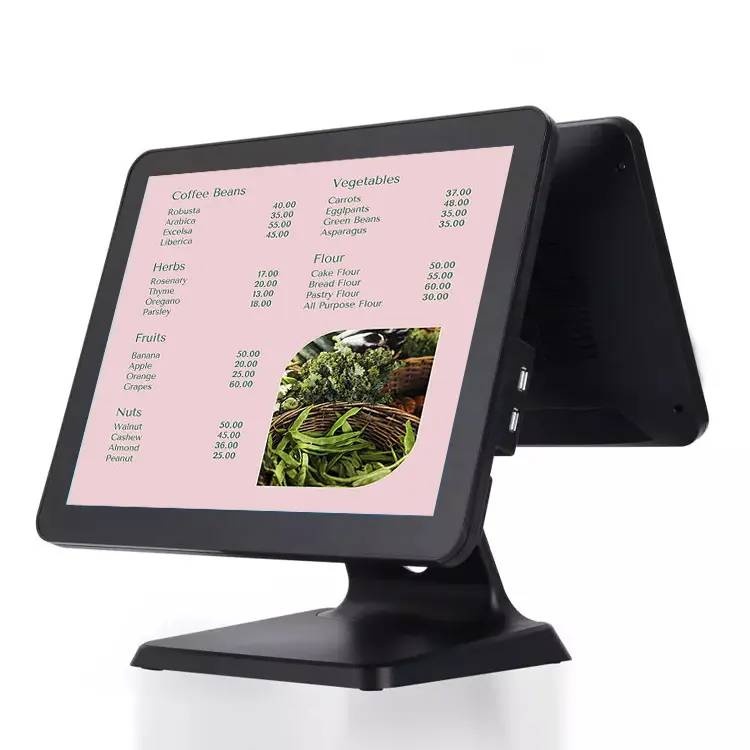Transforming Customer Satisfaction with Cutting-Edge POS Technology

In today's rapidly evolving commercial landscape, the customer experience is increasingly crucial than ever. As the emergence of tech innovations, businesses are continually seeking creative approaches to enhance their engagements with customers. One of the most transformative instruments in this context is the Point of Sale system. No longer just a payment processor, contemporary POS systems have transformed into sophisticated systems that can optimize business processes, improve client service, and provide critical insights into operational metrics.
Our detailed guide will explore into the key features of POS systems, examining their development from traditional cash registers to cutting-edge cloud-based technologies. We will discuss how a state-of-the-art POS system can transform your operations, especially in sectors like retail and hospitality. From understanding the features that boost customer experience to exploring the role of safeguarding and melding with additional business tools, this article will serve as a blueprint for businesses looking to adopt or enhance their POS technology. Regardless of whether you are a independent business owner or a leader in a big organization, the insights provided here will assist you maneuver the world of POS systems effectively.

Comprehending Point of Sale Solutions
A POS solution is a crucial tool for businesses, facilitating exchanges between customers and merchants. At its heart, a POS system includes physical devices and software that allows companies to conduct sales, monitor stock, and handle customer data. Traditionally, this was performed through cash registers, but modern Point of Sale systems have evolved significantly, integrating cutting-edge tech that optimizes operations and enhances customer experiences.
The progression of Point of Sale systems has shifted from simple traditional cash systems to complex, cloud-based systems that offer instant information analysis and reporting. These contemporary solutions can connect with other operational tools, such as financial and inventory oversight software, creating a smooth flow of data that enables for enhanced decision-making and effectiveness. As businesses strive to enhance their functions, understanding how a Point of Sale system can transform their processes is critical.
Moreover, with the increase of e-commerce and digital transactions, implementing a versatile POS solution that caters both physical and digital transactions has grown to be increasingly important. Impos must stay ahead of tech developments, ensuring that their POS systems not only meet current requirements but also evolve to upcoming demands. By leveraging state-of-the-art POS technology, organizations can transform their customer interactions, making transactions quicker, more secure, and easier to understand.
Changing Business with Advanced POS Technologies
Modern POS solutions are at the cutting edge of transforming how companies connect with their customers and oversee their activities. These advanced systems go beyond simple sales processing; they integrate features that support inventory management, customer relationship management, and data analysis. The transition from traditional cash registers to sophisticated cloud-based systems has allowed companies to function more efficiently and adjust better to client needs, thereby leading to greater satisfaction.
One of the most important ways modern POS systems change companies is through their ability to provide real-time data insights. With advanced reporting capabilities, executives can collect valuable information about revenue trends, customer behaviors, and inventory levels. This data not only drives decision-making but also permits businesses to customize their advertising strategies and promotions, creating a more tailored shopping experience. By harnessing this data, businesses can improve their operations and improve overall customer satisfaction.
Furthermore, the inclusion of mobile and touchless payment methods within contemporary POS systems meets the growing demand for ease. Consumers appreciate quick and hassle-free transactions, which advanced systems support with technologies like Near Field Communication and mobile wallets. This transition not only speeds up the checkout process but also enhances customer trust and loyalty. By adopting innovative POS technologies, businesses can stay ahead of the competition, ensuring they satisfy the shifting expectations of their patrons in a rapid marketplace.
Security, Compliance, and Upkeep of POS Systems
Guaranteeing the security of POS systems is crucial in today’s quickly developing digital landscape. Businesses must apply effective security measures to safeguard confidential customer data from cyber threats. This comprises using EMV chip technology, which helps to minimize the risk of deceptive transactions by making sure that data is secured and protected during the payment process. Moreover, regular updates to the POS software are necessary as they often contain security patches that combat against recently found vulnerabilities.
Adherence is another critical concern for companies using POS systems, especially with regard to PCI DSS standards. These regulations are designed to safeguard cardholder information, and failing to comply can lead to severe penalties and reputational damage. Companies must ensure that their POS systems are set up correctly to meet compliance requirements, conducting regular audits and assessments to ensure that security measures are up to date and effective in safeguarding customer data.
Maintenance of POS systems is just as important as their initial setup. Routine maintenance can avoid downtime and enhance performance, guaranteeing that the system functions effectively during busy business hours. More Help is recommended for businesses to create a regular maintenance schedule that includes inspecting hardware components, monitoring software performance, and educating staff on how to handle common issues. https://diigo.com/0ytydd and professional support can mitigate risks, ensuring that the POS system stays a reliable aspect of regular operations.
